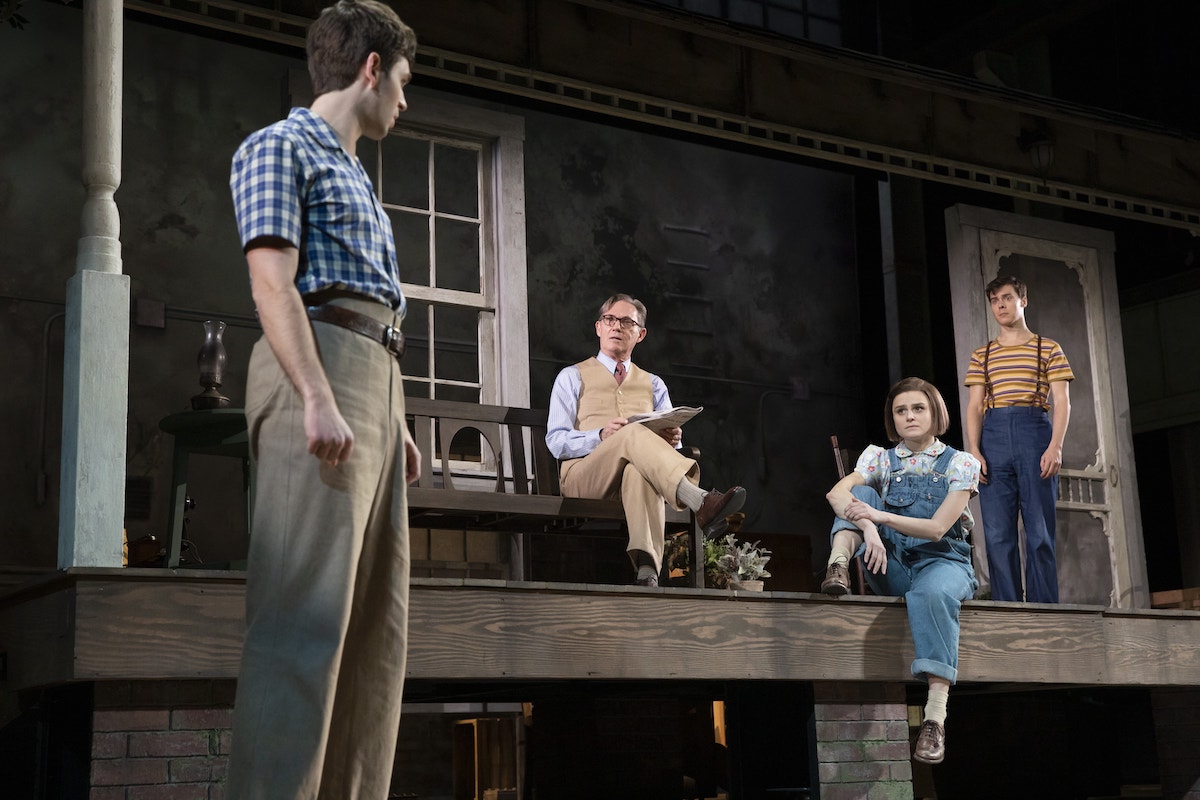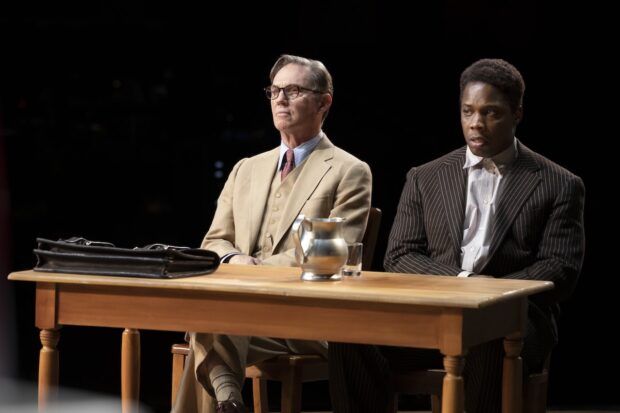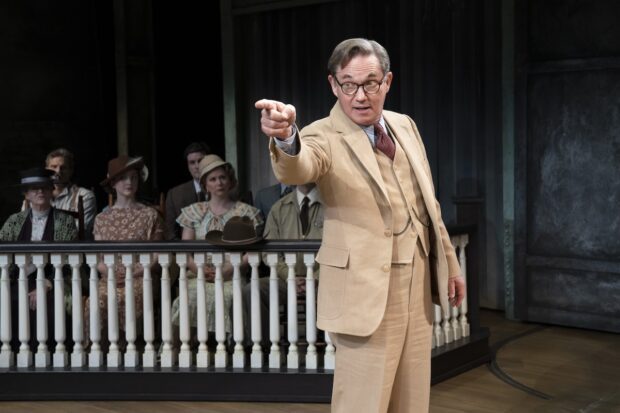Theater Review: Reimagined To Kill A Mockingbird remains poignant and relevant
To Kill a Mockingbird was adapted in 2018 by Aaron Sorkin (yes, that Aaron Sorkin) from the book of the same name by Harper Lee, written and released over sixty years ago. The national tour of Harper Lee’s To Kill a Mockingbird rolled into Orlando recently, and Attractions Magazine was invited to the Dr. Phillips Center for the Performing Arts to check it out.

Photo by Julieta Cervantes
I usually try to avoid spoiling major plot points in my reviews, but I had initially assumed everyone had read this book and I would be safe to discuss the plot here based on the fact that To Kill a Mockingbird has been a pretty consistent part of high-school English curriculum basically since it was written. However, the gasps from the audience as major plot points occurred informed me that I was very much mistaken, so I’ll keep this general.

Photo by Julieta Cervantes
The play takes place in the 1930s and tells the story of widowed attorney Atticus Finch as he attempts to defend Tom Robinson, a black man accused of sexually assaulting a white woman in a racially divided small town in the deep south. The action jumps back and forth between Tom’s trial and the events which led up to it. The play is narrated by Finch’s children Scout and Jem, along with their friend Dill and is based loosely on Lee’s recollections of a similar event that occurred in a town she grew up in during the 1930s.

Photo by Julieta Cervantes
The play remains mostly faithful to the events and overarching messages from the book, though it differs in at least one major way: While the book was told from Scout’s perspective, the play centers almost completely on Atticus Finch, including scenes she and the other children weren’t a part of and shouldn’t know anything about. The resulting shift in the primary protagonist causes the coming-of-age story that Scout goes through in the book to be almost entirely missing from the play; the major details coming as asides to the audience during narration sequences. This takes the character of Scout not just out of the main character position in the story but makes her almost entirely superfluous in a play whose message, themes, plots, and dramatic elements would remain completely intact with her absence.
Many of the themes from the book (gender roles, class differences, loss of innocence) appear to some extent in the play, but they all take a backseat to the book’s most major theme, that of racial injustice. It’s no surprise Sorkin decided to revamp To Kill a Mockingbird for a modern audience, with many of these issues from nearly a hundred years ago still as relevant as ever. The moralizing in the play is mostly well done with monologues and structure taken directly from the book, though it lost me a bit at one point when Atticus Finch stops addressing the courtroom and instead turns to deliver his closing remarks directly to the audience. Ultimately, the message still hits home as powerfully and importantly as those who read the book remember it.
The cast contains several performers with surprising pedigrees, including season 8 winner of “So You Think You Can Dance,” Melanie Moore as a decidedly dance-free Scout, and Mary Badham, the original Scout from the 1962 film version, as Mrs. Henry Dubose, a mean-spirited elderly neighbor of the Finches.

Photo by Julieta Cervantes
But the star of the show, both literally and metaphorically, was Richard Thomas as Atticus Finch. Thomas powerfully portrays Finch’s courage and tenacity, as well as his warmth and humor. Thomas’ ability to show Finch’s earnest belief in the inherent goodness of others is equal parts heartwarming and infuriating, depending on who it is directed towards, exactly as it should be.

Photo by Julieta Cervantes
All told, To Kill a Mockingbird is a well-done retelling of a powerful story that never dipped in energy during its close to three-hour run time. The only real mistake we saw during the production was the opening of act two, where Scout came out in front of the curtain while the lights were still up and just started the narration, causing a scramble of people getting back to their seats and confusion about exactly what was happening. If this was a choice, it was an odd one but ultimately did little to take away from the power of the piece as a whole. Whether you’re reliving a classic in an all-new way or being exposed to the story for the very first time, To Kill a Mockingbird is poignant theater presented well and delivers a message we should never forget.

Photo by Julieta Cervantes
Harper Lee’s To Kill a Mockingbird runs through March 26, 2023, at The Dr. Phillips Center for the Performing Arts. For tickets, visit www.drphillipscenter.org/. To find out when the tour is visiting a town near you, visit www.tokillamockingbirdbroadway.com/tour/.
Dr. Phillips Center is also offering a To Kill A Mockingbird monologue workshop on March 24, 2023, at 4:30 p.m. Designed for students age 15+ who are auditioning for shows, college, studios, or professional acting programs, participants will receive feedback from Justin Mark, who plays Jem Finch in the national tour of To Kill a Mockingbird. Click here for more information.

